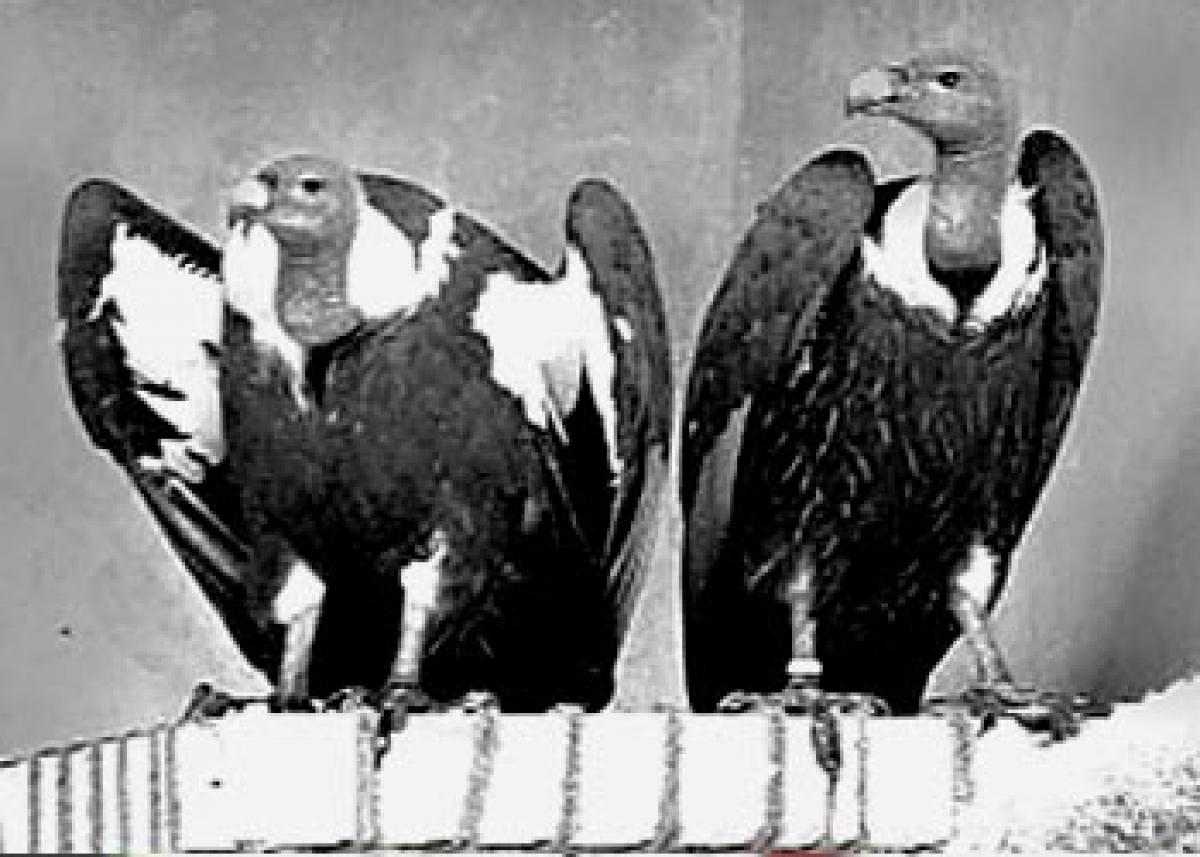Live
- Huge protest rally in Haveri
- Video: Rashmika Mandanna connects with nature, soaks in waterfall on Earth Day
- Is Sreeleela set to star opposite Ajith in 'Good Bad Ugly'?
- 6 YSRCP activists injured in attack by TDP men
- More nominations filed on auspicious day
- Chandrababu participates in women's conference in Viziagaram
- The critical need for special education in preschools
- Loneliness is a reason for your late-night chocolate cravings says study
- Championing creativity: Celebrating literature & diversity
- Aishwarya Rajesh makes her Sandalwood debut opposite Dhananjaya in 'Uttarakaanda'
Just In

With just eleven White-backed vultures bred in captivity and the authorities depending on just one pair, the vulture breeding centre has still not met with success even after six years
With just eleven White-backed vultures bred in captivity and the authorities depending on just one pair, the vulture breeding centre has
still not met with success even after six years
Hyderabad: The vulture breeding centre at the Nehru Zoological Park (NZP) remains a non-starter even six years after its initiation. The
reason for the failure is that the authorities have depended upon just one pair of vultures for breeding.
After spending close to Rs 60 lakh since 2009-10 and four failed attempts, the latest disappointment is that the egg has turned out to be
infertile, the much publicised breeding programme is once again in the eye of the storm.
Experts say that the reason for the lack of success is due to the dependency on old vultures that are past their prime. While other
breeding centres in the country are successful, the centre at the zoo is a pale shadow in contrast. For instance, the breeding centre in
Pinjore at Haryana is a success for the only reason that there are hundreds of vultures being bred in captivity. At Hyderabad there are just
11 White- backed vultures.
The present ratio of 7:4 is just not enough says Umapathy, a scientist at Laboratory for the Conservation of Endangered Species
(LaCones). “Unless more number of vultures are brought from other parts of the country, that too young ones, the breeding programme
will not be successful.”
The centre started in 2009-10 period with five vultures with a ratio of 2:3 (a male and three females) bought from a private bird
merchant from Kanpur and later in 2014, six more were procured from Gujarat (5 male and 1 female).
Till date though only one pair has mated but only one egg hatched but the chick could not survive. In the past, an egg fell off the nest,
and in subsequent years, in 2014 and 2015 the egg proved infertile.
There were instances where the authorities even thought of calling off the breeding programme as some believe that breeding is better
off in the wild. Squashing theories that breeding could happen only in the wild, Umpathy said that there needs to be enough number and
more importantly, young fertile vultures for any breeding programme to become successful.
Unlike other species, vultures are slow in breeding. They lay just one egg a year. Compatibility and fertility are the two main reasons
cited for the lack of success. Experts have been voicing their concern over the failure to increase the number of vultures for breeding and
depending on a pair of old vultures. The pair of vultures that are mating at the breeding centre are between 35-40 years.
The revival of the White-backed vulture along with Long Billed and Slender Billed vulture, the three most endangered species is crucial
for the environment.

© 2024 Hyderabad Media House Limited/The Hans India. All rights reserved. Powered by hocalwire.com







